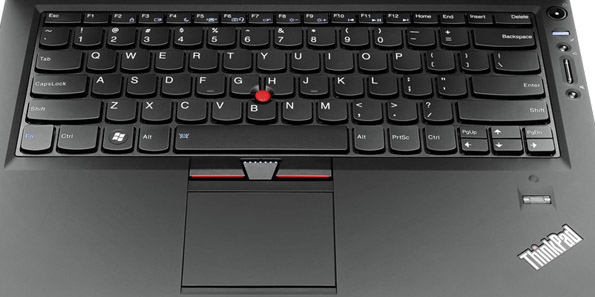Lenovo ThinkPad X1 Ultralight Laptop Review
Lenovo PR has made much of the X1's 'Gorilla Glass' display and its ability to stand up to poor treatment. We have no complaint with the glass, but the display behind it is somewhat disappointing. Color reproduction is poor—even in desktop work, the colors are noticeably washed out. And any attempt to watch a movie on the X1 will send users scurrying for Intel's HD 3000's multimedia controls in an attempt to improve the picture.
We'd like to see Lenovo offering an optional upgrade to 1400x900. The higher resolution makes a difference on the small 13.3" screen, and would put the X1 on par with the MacBook Air in this respect.
Ironically, Lenovo's press release states: "Business machines aren't normally known for their audio/visual experience, but the ThinkPad X1 changes that with its rich and full sound, a 720p camera, and high definition microphones." All those statements may be true, but the display itself isn't quite up to par with what we expect in a $1000+ multimedia system. It's still very good, just not exceptional.
The included speakers are very good by laptop standards. They're clear, loud enough to be practically useful, and handle both music and voice well. They aren't quite as nice as the JBL speakers on the Y560D we reviewed last year, but they're far better than the anemic audio most OEMs offer.
Chassis:

The X1 can be held from any corner without any visible flexion. The chassis feels sturdy as opposed to brittle or overly rigid. If bent from both sides it flexes easily. One oddity here—flexing the system on purpose makes the hard drive vibrate directly against the chassis. Obviously, this isn't a typical use case scenario and there's no indication that this actually harms any components, but we don't recommend it.
Keyboard, TouchPad, TrackPoint:


Lenovo's control panel allows for a great deal of customization
The complexity of the combined TrackPoint/TouchPad system makes it difficult to rate the pointing device(s). All of the control schemes work well on their own, but users will want to fine-tune control via the UltraNav tab—leaving everything enabled (as is default) isn't a good idea. Again, we wish Lenovo offered a simple utility for calibrating and testing the mouse options rather than stuffing the UltraNav tab into Microsoft's standard 'Mouse' option in the Control Panel.






